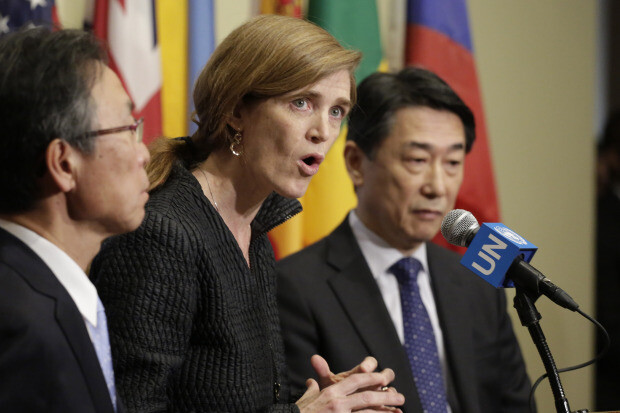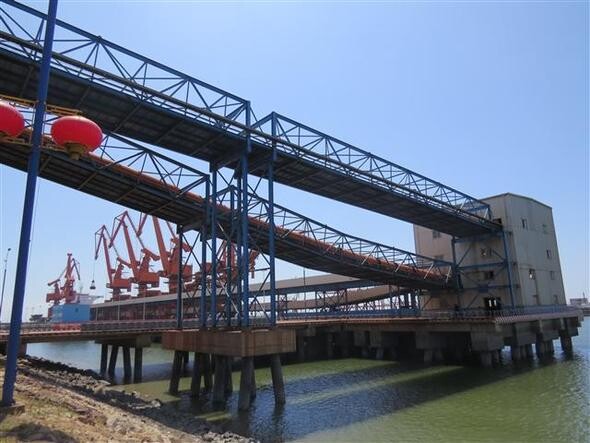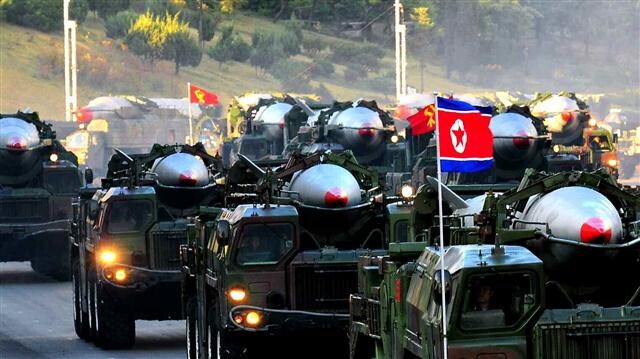hankyoreh
Links to other country sites 다른 나라 사이트 링크
[Analysis] How effective will the “strongest sanctions” on North Korea really be?

“The strongest set of sanctions imposed by the Security Council in more than two decades,” said US United Nations Ambassador Samantha Power.
“The strongest UNSC [United Nations Security Council] economic sanctions short of punishment through war and invasion. There has never been this kind of intensity and comprehensive content in any UNSC sanctions in the past,” said a South Korean Ministry of Foreign Affairs official.
Both Seoul and Washington are stressing the unprecedented strength of a recently proposed UNSC resolution sanctioning North Korea for its recent fourth nuclear test and rocket launch. A Ministry of Foreign Affairs official who previously called for “conclusive sanctions” described it on Feb. 26 as “much stronger in intensity that what we were anticipating or expecting.”
And it lives up to the billing. If approved, it would be the first North Korea resolution with targeted sectoral sanctions banning and/or limiting trade involving North Korean mineral and metal resources, while instituting mandatory inspection for all cargo entering and leaving the country.

Two variables should be considered in gauging how effective the new UNSC resolution would in pressuring Pyongyang. The first concerns that decisions and commitment to execution from China, partner in over 90% of North Korea’s foreign trade. Second is the fact that “welfare” and “humanitarian aid” were not included.
“The resolution focuses on a ruling elite that have inflicted so much . . . suffering,” Power explained, insisting that the sanctions were not intended to punish the North Korean public.
That step appears to reflect China’s stern message that any UNSC sanctions approved should not trigger a humanitarian disaster for the welfare of ordinary North Koreans. It also means that how effective the sanctions are will be largely determined by how Beijing interprets the new resolution’s terms.

No measures to stop Chinese crude exports, dispatching of NK workers?
Also notable is the omission of any measures in the resolution in two areas where South Korea and the US have been pressuring China as part of their “conclusive sanctions” calls, namely a ban on Chinese crude oil exports to North Korea and the overseas dispatching of North Korean workers, which is seen as one of the countries’ chief sources of foreign currency. Without them, the resolution loses much of Seoul and Washington’s key demands.
“Stopping the dispatching of workers overseas is an area where North Korea would suffer the most direct kind of blow. It looks as though Beijing wouldn’t accept that out of concern for North Korea’s situation and the demand for North Korean labor in its Northeast,” said Sungkyunkwan University professor and China expert Lee Hee-ok.
First sectoral sanctions targeting specific trade areasPower also said the measures would be “limiting, and in some instances banning outright, exports from the DPRK of coal, iron, gold, titanium, and rare earth minerals.” These “sectoral sanctions” are a new feature absent from previous UNSC resolutions on North Korea. In a sense, they’re an adapted form of the secondary boycott measures Washington used in its past sanctions against Iran for the local industries behind the crude oil and automobiles used toward making “powerful weapons.”
But a closer look suggests the sanctions may not be effective as their surface suggests. Citing a draft resolution copy it had obtained, Reuters reported that gold, titanium, and rare earth minerals would be subject to an export ban, while coal and iron (ore) would be excluded from the sanctions as long as it was used for “livelihood purposes” and the funds were not diverted into North Korea’s nuclear and missile development.
Coal happens to be North Korea’s number one export to China - meaning a full-scale ban on its exportation would deal a serious blow to the North Korean economy. The effectiveness of the terms banning coal exports would thus depend on how Beijing reads and implements the “livelihood purposes” proviso. Another fact to consider is that North Korean coal and iron ore exports to China have been rapidly declining. Korea International Trade Association (KITA) statistics show coal exports dropping 18.2% in 2014 and 6.3% in 2015. Iron ore was North Korea’s second-ranked export to China in 2005; last year, it didn’t even rank in the top five. The reason is a combination of falling prices as global supplies increase and a decline in Chinese demand. In the case of coal, it should be noted that the Chinese government has been instituting stern policies deterring its use to address serious air pollution problems. An additional factor to consider is the vigorous collaboration between North Korea and China on projects in the latter’s three Northeastern provinces for development of the former’s mineral resources. Taken together, experts agreed, the situation suggests the effects of the mineral and metal export ban could be limited.
Mandatory cargo inspectionThe emphasis from Seoul and Washington has been on measures instituting mandatory inspection for all cargo traveling toward or coming in and out of North Korea - “for the first time in history,” Power noted. The resolution’s terms applied specifically to 31 vessels belonging to North Korea’ Ocean Maritime Management Company (OMM), which was listed as a target in UNSC sanctions from July 28, 2014. Here, too, the effectiveness of the sanctions depends on the judgment and enforcement of China. More than 90% of North Korea’s foreign trade is with China, and over 70% of that takes place through the Sinuiju-Dandong channel. Given China’s relations with North Korea and demand for economic cooperation in its three Northeastern provinces, the possibility of Beijing conducting strict inspections appears to be fairly low. South Korea, in contrast, has no overland trade with the North after the shutdown of the Kaesong Industrial Complex, and the May 24 measures it imposed after the 2010 sinking of the ROKS Cheonan corvette already ban ships traveling to and from North Korea from entering South Korean ports.
Stronger controls on munitions?None of this means the new UNSC resolution would be a mere paper tiger. Noting that the measure focused on the three categories of munitions, the general economy, and humanitarian areas, Inje University professor Kim Yeon-chul predicted it would “have the effect of munitions controls becoming much stronger than they’ve been.” A case in point in its ban on exports of rocket and other aviation fuel to North Korea, which is certain to impact the North Korean Air Force and rocket development program. Also expected to have real teeth are stricter “catch-all” provisions banning UN members from trading with North Korea in “dual-use items” that could be diverted to the military. Even there, the matter is up for individual governments to decide, which could lead to inconsistent effects. Financial sanctions on North Korean financial institutions established overseas and foreign financial institutions in North Korea also look to have been beefed up substantially.
By Lee Je-hun, staff reporter
Please direct questions or comments to [english@hani.co.kr]

Editorial・opinion
![[Column] Park Geun-hye déjà vu in Yoon Suk-yeol [Column] Park Geun-hye déjà vu in Yoon Suk-yeol](https://flexible.img.hani.co.kr/flexible/normal/500/300/imgdb/original/2024/0424/651713945113788.jpg) [Column] Park Geun-hye déjà vu in Yoon Suk-yeol
[Column] Park Geun-hye déjà vu in Yoon Suk-yeol![[Editorial] New weight of N. Korea’s nuclear threats makes dialogue all the more urgent [Editorial] New weight of N. Korea’s nuclear threats makes dialogue all the more urgent](https://flexible.img.hani.co.kr/flexible/normal/500/300/imgdb/original/2024/0424/7317139454662664.jpg) [Editorial] New weight of N. Korea’s nuclear threats makes dialogue all the more urgent
[Editorial] New weight of N. Korea’s nuclear threats makes dialogue all the more urgent- [Guest essay] The real reason Korea’s new right wants to dub Rhee a founding father
- [Column] ‘Choson’: Is it time we start referring to N. Korea in its own terms?
- [Editorial] Japan’s rewriting of history with Korea has gone too far
- [Column] The president’s questionable capacity for dialogue
- [Column] Are chaebol firms just pizza pies for families to divvy up as they please?
- [Column] Has Korea, too, crossed the Rubicon on China?
- [Correspondent’s column] In Japan’s alliance with US, echoes of its past alliances with UK
- [Editorial] Does Yoon think the Korean public is wrong?
Most viewed articles
- 1‘We must say no’: Seoul defense chief on Korean, USFK involvement in hypothetical Taiwan crisis
- 2N. Korean delegation’s trip to Iran shows how Pyongyang is leveraging ties with Moscow
- 3‘Weddingflation’ breaks the bank for Korean couples-to-be
- 4Korea sees more deaths than births for 52nd consecutive month in February
- 5[Column] Park Geun-hye déjà vu in Yoon Suk-yeol
- 6Will NewJeans end up collateral damage in internal feud at K-pop juggernaut Hybe?
- 7[Column] Has Korea, too, crossed the Rubicon on China?
- 8Amnesty notes ‘erosion’ of freedom of expression in Korea in annual human rights report
- 9Samsung barricades office as unionized workers strike for better conditions
- 10[Column] The clock is ticking for Korea’s first lady